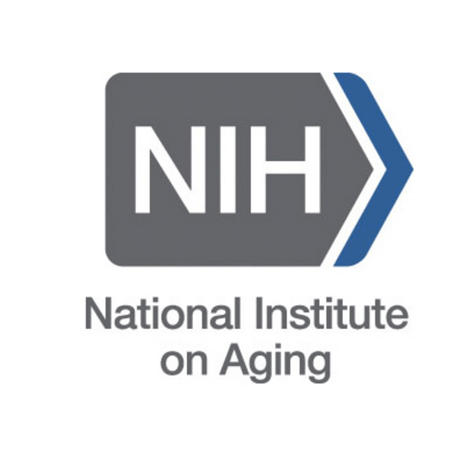What is an aging biomarker?
Biomarkers broadly are measures of a medical or biological process. Typically they are quantifiable and objective, to ensure they can be used reliably for clinical research. Review the papers below to find out more, including about new biomarker technologies and different types of biomarkers. For instance, surrogate trial endpoints are a special subset of biomarkers that are well-defined and have undergone extensive testing, and as a result when improved by treatment they are able accurately predict a clinical benefit for patients.
Literature reviews
The global population of individuals over the age of 65 is growing at an unprecedented rate and is expected to reach 1.6 billion by 2050. Most older individuals are affected by multiple chronic diseases…
Identifying and validating molecular targets of interventions that extend the human health span and lifespan has been difficult, as most clinical biomarkers are not sufficiently representative of the fundamental mechanisms of ageing to serve as their indicators…
Recent advances indicate that biological aging is a potentially modifiable driver of late-life function and chronic disease and have led to the development of geroscience-guided therapeutic trials…
Interest is increasing rapidly in the use of surrogate markers as primary measures of the effectiveness of investigational drugs in definitive drug trials…
Recent Research Presentations
Here’s what the experts have been saying:
Senescence-derived Biomarkers of Aging
“I wanted to talk to you about some of our recent work that has resulted out of our unbiased biomarker discovery pipeline focused specifically on senescence biomarkers…”

Dr. Birgit Schilling & Dr. Judy Campisi
Buck Institute
Validation & Optimization of Epigenetic Clocks
“This was the motivation to generate the second generation of epigenetic clocks. These epigenetic clocks should really be understood as mortality risk predictors…”

Dr. Steve Horvath & Dr. Alexandra Binder
Univ of California Los Angeles & Univ of Hawaii
Viral Burden and Systemic Inflammation as Biomarkers for Chronic Disease and Frailty in Aging
“These viruses lead to repeated immunologic stimuation, leading to immunosenescence. And Immunosenescence is a very pro-inflammatory state which we think leads to the chronic diseases we find in aging…”

Dr. Homer Twigg III
Indiana Univ School of Medicine
Blood-Based Bioenergetic Biomarkers of Aging
“I wanted to give a brief background on why we think mitochondrial bioenergetics can be a reliable biomarker of biological age. Our lab has used blood-based bioenergetic profiling specifically…”

Dr. Anthony Molina
UC San Diego
Transcriptomic Signatures of Aging-Related Diseases
“The reason we use transcriptomic profiles is becaue it reflects molecular activities of the cell… monocytes are studied specifically as they are involved in many age-related diseases in terms of pathogenesis.”

Dr. Jingzhong Ding
Wake Forest School of Medicine
NIA Predictive Biomarkers Initiative
Research Centers
Each academic center is focused on the development of aging biomarkers and related research tools, which are enabling a wide range of human observational and interventional studies. Their work is also enhancing the ability for treatment developers to identify new targets for interventions and to assess the effects and mechanisms driving new treatments.
Quantitative Proteomics to Develop Robust Senescence-Related Biomarkers of Aging (Schilling)
We propose to develop robust biomarkers and high-throughput proteomics assays for proteins that are regulated and secreted during cellular senescence. After thorough validation of these candidates as biomarkers of aging they will be quantitatively measured in plasma and plasma exosomes from human aging cohorts, and subsequently correlated to aging and specific health outcomes.
Validation and Optimization of Epigenetic Clocks (Horvath)
We will optimize DNA methylation biomarkers and complementary molecular biomarkers for clinical studies of anti-aging interventions and we will validate these biomarkers in human longitudinal cohort studies.
Validation of Nuclear Morphology as a Biomarker of Aging and Aging-Related Phenotypes (Wirtz)
We have recently used high-throughput measurements of nuclear morphology of cells to identify outstanding biomarkers of chronological age. We propose to test the hypothesis that changes in nuclear morphology can be rapidly measured and that age-related alterations correlate with aging-related phenotypes and disease states independently of chronological age, consistent with a measure of cellular biological age.
Integrating Omic Profiles with Mechanistic Measures (Ding et al)
Given the rapid aging of the US population, there is an urgent need for countering aging-related diseases. The proposed study will integrate measures in circulation and skeletal muscle to generate a group of human markers, which can help us to test beneficial effect of a therapy on aging-related disease.
Viral Burden and Systemic Inflammation as Biomarkers for Chronic Disease and Frailty in Aging (Twigg et al)
Many of the chronic diseases associated with aging as well as frailty are associated with evidence of chronic inflammation, which is usually due to persistent activation of the immune system. Because viruses are known to persist even after acute infection, these organisms could potentially lead to chronic inflammation. In this project we will be assessing whether viruses that inhabit the body in asymptomatic older people lead to chronic inflammation and whether this is associated with diseases of aging and markers of frailty.
Phenotypes of Aging & Senescence (Steve Cummings et al)
The PHenotypes of Aging and SEnescence (PHASE) study will develop a panel of markers for the process of cell senescence, a fundamental biological process of aging in which cells stop dividing and begin to secrete products that impair the function of other cells and tissues. Treatments that partly eliminate senescent cells, ‘senolytics,’ reduce effects of aging and prolong life in mice and are now being tested in humans. PHASE will produce markers that can be used to test the efficacy of new treatments in humans and identify people who are most likely to benefit from senolytic therapy.
Extracellular Vesicles and their Role in Hallmarks of Aging (Virginia Kraus)
In contrast to the existing biological paradigm of an abundance of freely circulating molecules in the bloodstream, it is becoming increasingly clear that many different molecules are shuttled together as cargo protected within membrane bound vesicles. These vesicles are secreted from all cells in the body and have the ability to transmit signals and have biological effects on other parts of the body. Using large numbers of already collected precious human specimens, this project characterizes the types and role of these vesicles in aging and develops new blood biomarker tests for these vesicles to better understand mechanisms of aging and ways to extend healthspan.
Mitochondrial DNA Deletion Mutations (Wanagat et al)
Age is the primary risk factor for the leading causes of disability and death and interventions are needed to slow the rate of aging and improve health. In order to develop and test emerging interventions, we need accurate markers of the aging process. The proposed studies will develop a new biomarker of aging that will help predict human healthspan, enable clinical trials to intervene on the aging process, and improve human healthspan.
Get in Touch
If you’re interested in finding out more about this research and getting involved, or to contact us for any reason, let us know!
This site was created to facilitate integration across projects funded by the NIA Predictive Biomarkers Initiative. To identify opportunities for collaboration, please don’t hesitate to contact us or any of the project PIs directly.
NIA PREDICTIVE BIOMARKERS INITIATIVE
Site managed by UCLA U01 Center











